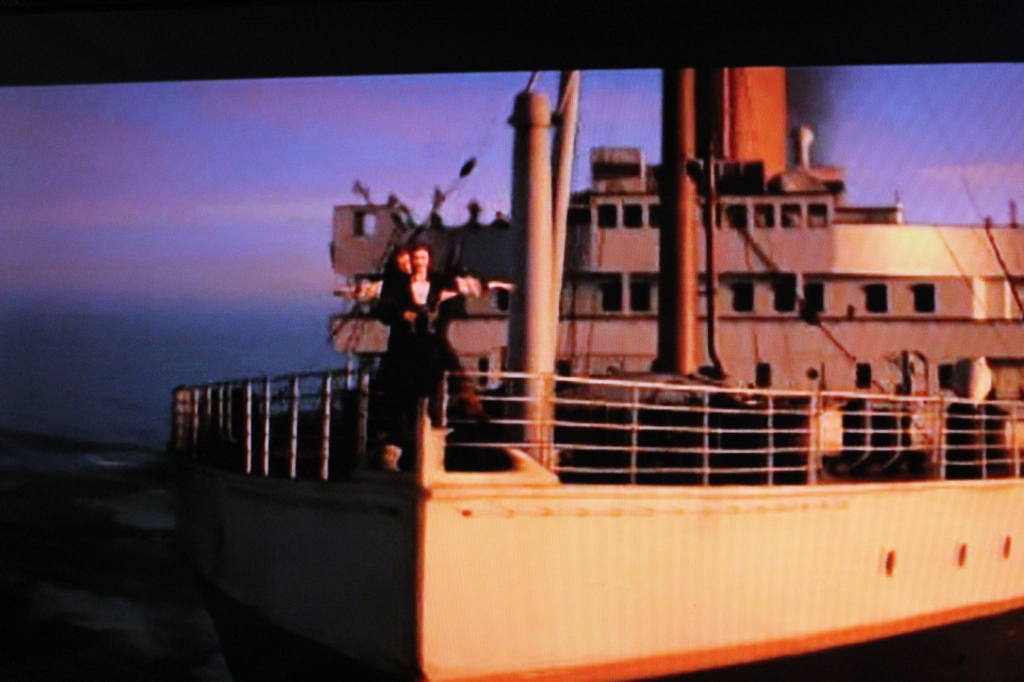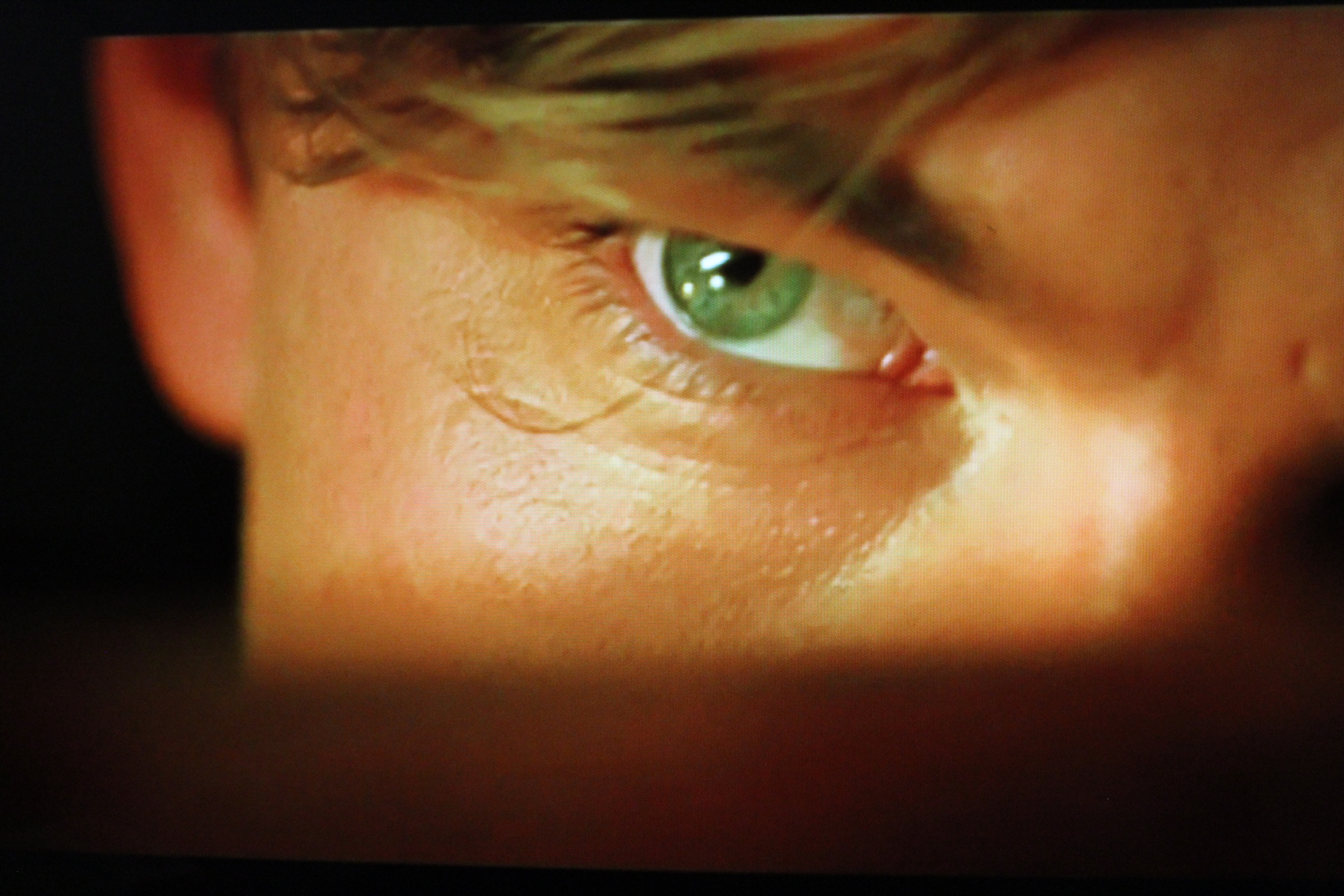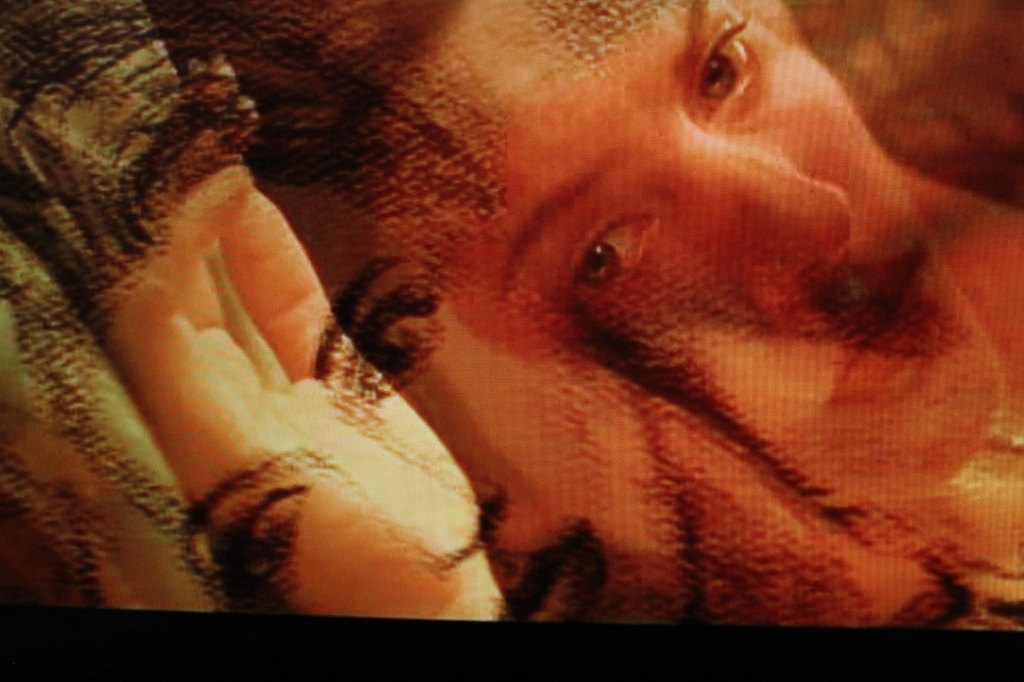I took a memory trip to the bottom of the ocean. Here’s what I found...
In 1998, I think I saw Titanic 6 or 7 times at the cinema. I queued up at midnight to buy the video tape on the day that it was released. I knew it off by heart and cried every time.
I certainly wasn’t the only teenage girl doing such things. I recall countless sleepovers, huddled on sofas watching Titanic just one more time. I remember watching it alone in my room in the early morning hours when I couldn’t sleep. The main characters, Jack and Rose were constant reference points in my friendship group. We regaled passages of it that I still remember to this day (“Jack, I’m flying!”, “retire with a bang, eh, EJ?” “when you got nothin’ you got nothin’ to lose”).

We had ways to measure its worth: how many times we’d seen it at the cinema, how well we understood the characters, how much we felt. We measured our tears: how hard we had cried, and for how long. Titanic offered some sort of catharsis, it inspired collective weeping, and by the end of the Titanic phase, I was already sobbing by the opening credits.
Such a theatrical, teenagey, angsty attachment to a James Cameron blockbuster has, unsurprisingly, led me to look back on the film as being, well, theatrical, teenagey and angsty. In short, my view for many years has been that Titanic is actually probably not-that-good.
It’s hard to view with fresh eyes a film you watched over 20 times in the short space of a year, even if it is over 20 years later. But recently, for the first time, I went back to Titanic. And while recognising the bias of nostalgia and familiarity… it’s really not-that-bad. It’s a good story! (Although, in all honesty, I used the whole ship-going-down section of this three hour long film to write this post).

Titanic is told as a tale of looking back (Rose’s memory is the story), and as the film itself is a memory to me, I’ve entered into a sort of memory mise-en-abyme. And that is fitting given that I think the true poignancy – or cry factor – of Titanic is not the love story, or the historical event it draws on, but the magnitude – and placelessness – of memories and moments gone.
The ship RMS Titanic is itself a lost thing, sunk to the bottom of the sea. We – and the film- tend to view the real-life Titanic story as one of hubris, but Titanic is (or was) also a great – and greatly invested in – dream. In the film, peripheral glimpses of other characters mostly represent some kind of hope. Some are on board to start a new life / find a new home and some, like Jack, are going home.

The Titanic’s status as a “ship of dreams” is visually connected to the theme of memory in this film by the transition from footage to flashback. Submarine camera shots of the wrecked ship transform, ghost-like, into what The Titanic once was. Through the lens of Rose’s memory, rusty, skeletal remains are returned back to grand gleaming doors and chandeliers.


The grandness and optimism of the ship is a frame around which we learn of Rose’s then precarious emotional state. Feeling pressured by her mother’s control, financial woes that threaten her family’s name and status, and the general expectations of her class, she is about to marry a rich man she does not love (and who of course turns out to be evil).

100 year old Rose describes her 17 year old self as “standing over a great precipice”, about to fall. 17 year old Rose tells Jack that she feels like she is “screaming at the top of my lungs, and no one even looks up”. When she sings of “those in peril on the sea” at morning prayer, it is not just an ironic foreshadowing of the tragedy that we, the audience, already know is ahead, but a warning too, of Rose’s own peril aboard the metaphorical ship of her inner world.

Jack is a poor artist who lives off luck and wit, and who sees the “fire” in Rose, and cares about it. This gift of ‘seeing’ underscores his first talking her out of suicide, and culminates in his eventually dying for her while keeping her afloat on a plank that – as was widely and furiously discussed by every adolescent girl in 1998 – could have fit two. It is in this way, Rose explains, that Jack “saved me, in every way a woman can be saved”, although the narrative also makes it clear that this was just as much a journey of saving herself.
The key signifier of this transformative moment/person in Rose’s life is the picture he draws of her.


Symbolically, it is in this moment of being drawn that Rose is ‘seen’ (it is his art that makes Rose tell Jack “you see people”). And it is this drawing that emerges to facilitate the telling of her story. In the picture, she wears the diamond gifted to her by her evil fiancé, a diamond that is now being hotly hunted, 84 years later by treasure seeker Brock Lovett and his crew. (Guys! Rose has still got it! And if you didn’t mantalk over her she might have told you!)

This drawing is also one of the few found things in the wreck that has been ‘preserved’. Indeed, the other pieces recovered from the ship during the quest for the diamond highlights this contrast. These artefacts of Rose’s past; a cracked mirror, a hairpin, not touched or seen for nearly a century, all indicate a specific memory, a particular moment in historical and personal time of a life that is gone, a life that was left on that ship. (She took Jack’s surname as her own upon arrival in America, leaving her former identity presumed dead).
But unlike the failed dream of a ship that exists as ragged pieces and broken possessions, Jack, by dying, by sinking – frozen, no less – into the sea, is a preserved dream. As much a gem as the diamond, and just as untarnished by time.

In real life, Jack and Rose would never have worked out, and even if they had, those happy beginnings would almost definitely have been tainted by disagreements and disillusion. Instead, as Celine Dion tells us, their love goes on. Past and present consequently transcend each other, as made clear in Rose’s last words on Jack.
“I don’t even have a picture of him. He exists now, only in my memory”.
And via this ‘existence’ of “now”, she keeps him. In keeping him, she also keeps her youth; the person she was, the girl becoming a woman, (“wasn’t I a dish?”), a soul on a precipice still, but a precipice that ultimately became a threshold of possibility.
The visual depictions of a ghost ship coming back to life at the beginning and the end of the film thus show us how the dream of the Titanic, and the dream of Jack, is a place to which – in Rose’s own dreams – she has continually returned.
So what do I think of Titanic now? I’m not sure. Has it been a vehicle to look into my present self, as I did back then? Or do I more use it to look back at my past self, and wonder…
Barely into my teens, what long lost life did I have to recall? What sunken, broken treasures? I was younger than the main characters I was identifying with, and I couldn’t possibly have related to the older woman looking back at a picture of herself in bloom, the moment when she, in symbolic and narrative terms became a ‘woman’. I wasn’t yet one myself.
But then, watching it now, I’m not 100 years old either. I can only relate to this as someone 21 years older than I was. Thus the continual interplay between past, present and future selves plays out in whatever story you ever return to. And perhaps, like Rose, to revisit the story is in itself a type of Derridean mourning. A way to keep something that is gone, a way to grieve.


Titanic may not be a classy cinema classic. It’s certainly not the only film to deal with memory, loss and dreams. And these themes may not be, in Titanic, the most subtly conveyed, or the most sophisticated, or the most worthy of three hours of my precious time.
But so what? I don’t quite remember all the words anymore, and I certainly don’t think or talk about it much. But I still remember how Titanic made me feel. Subjective though it may be, and as easy to discard or minimise now on grounds of better, more adult taste, how something made you feel is – as Maya Angelou suggests – still a pretty good measure of how you look back.

P.S. In a post about memories, I dedicate this post to my long lost friend Lucie. Titanic was an event for all of us, and in an All Girls school it was basically a key passage of life! But she and I were probably the most emotionally invested, and we wrote many letters to each other discussing its finer qualities.
Wherever you are these days Lucie, I hope you are well 🙂
